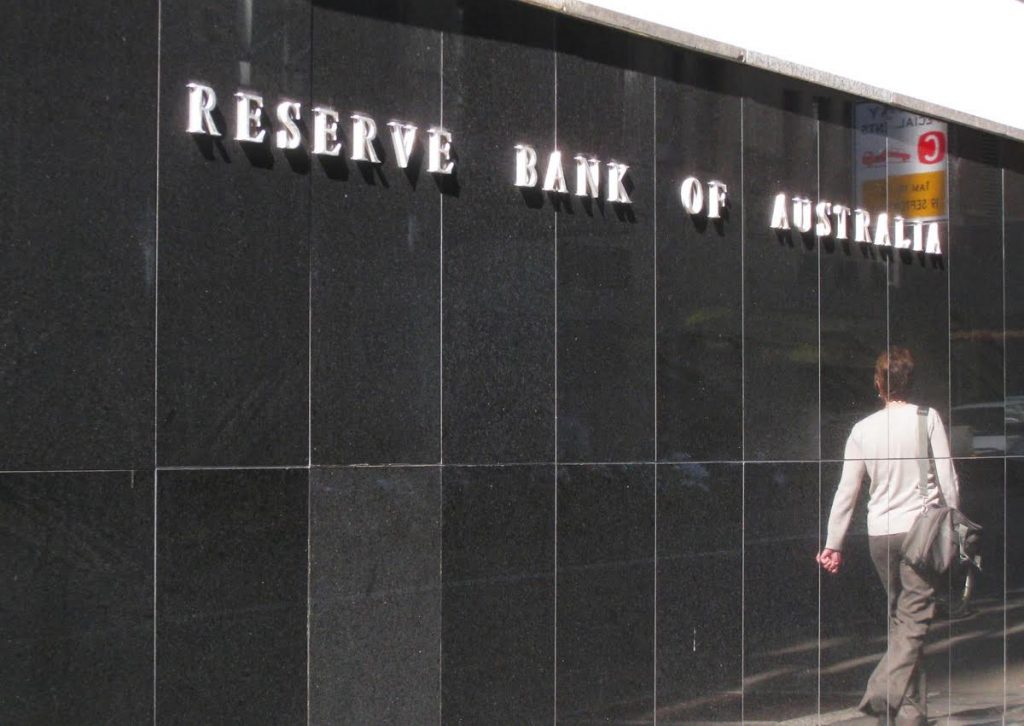The Reserve Bank of Australia (RBA) last week announced changes to credit cards payment regulations.
Although they may sound boring (and to read, they are), these changes are significant in the world of credit card issuers and will have a number of consequences for frequent flyer point collectors.
In this article we simplify the mumbo jumbo and tell you exactly what has changed and how this is going to affect you when you’re flying or earning and redeeming points.
Photo from user newtown_graffiti on flickr
The two key changes for points earners and flyers are related to:
- Surcharges for credit card payments, and
- Interchange fees that banks earn when you use their cards.
On the whole the changes are not good news for frequent flyers, they are likely to reduce the value of bank rewards programs as well as the earn rates on premium cards.
Some silver linings may exist though, especially when it comes to airline surcharging.
These changes won’t come into effect until July 2017, but banks may start preparing from them before then.
Credit Card surcharges on purchases
The first change the RBA is bringing in is a reform of credit card surcharges.
Surcharges are the fees that retailers add to the final purchase price when you choose to pay by credit card. These are very broad changes, they effect every store and retailer, not just airlines.
The old
This move has been expected for quite some time now and it is aimed squarely at airlines. At the moment, some airlines are charging up to $8.50 in surcharges for low cost domestic flights.
This is a hefty addition given that these flights can sometimes be as low as $39 before the surcharge, and you will only find out about it once you’ve reached the final payment page.
The RBA did not try to hide the fact that budget airline surcharges are exactly what they are trying to change. Their final report says that “surcharges of $7–8 per booking would appear to be well in excess of the cost of accepting cards for low‐value domestic airfares”.
The new
The new rules will mean that airlines (and all other stores) will not be allowed to charge a flat surcharge fee for paying by credit card. Instead, all surcharges will have to be a % of the purchase.
This means that low-cost items, such as budget domestic flights, will not be able to sting you with a large surcharge on the last page. However, on larger fee purchases such as international or business class flights, airlines (for example) will probably start to pass on more fees than they currently do as the total transaction cost is higher.
The percentage that can be charged must only cover the cost of processing the transaction. The RBA has brought in new rules to make sure that no stores are making a profit through surcharges.
These rules came into effect for large merchants on 1 September 2016 and has extended to all merchants from 1 September 2017.
The Verdict
These changes will have both good and bad effects.
On the bright side, they will reduce the surcharges that are currently charged on low cost items such as budget domestic flights, just as they were intended to do.
Since surcharges will be a % of the price, low cost items will have a lower surcharge. However, it also means that higher cost items will have a higher surcharge.
So if an airline sets surcharges at 2%, a budget $50 flight will be better off with only a $1 surcharge, but a $2,000 international flight will be much worse off with a $40 surcharge.
Business class passengers and long haul international flights will be the losers in this equation, but budget domestic travellers will come out on top.
Interchange Fees
The second major change that will affect frequent flyers is the cap on interchange fees.
The old
Interchange fees are what credit card companies (such as Visa, Amex and Mastercard) pay banks each time you use your credit card. Banks use these fees to pay for points and rewards programs.
Premium cards have a higher interchange rate than standard cards. That’s why they have higher earn rates and come with additional perks.
There have always been regulations on interchange fees, but under the current rules premium cards still have high interchange fees, some up to 2%.
The new
The new laws will cap interchange fees at 0.8%, significantly lower than what most premium cards are offering now.
We asked Amex for their take on the changes – you can read that Q & A here.
The verdict
These new laws will dramatically reduce the amount of money banks get to fund rewards programs.
In statements to a number of news sources, Mastercard has said that “the cost of these changes to the banks will be in the hundreds of millions of dollars.”
They also claim that in the past this regulation has meant that “banks needed to replace this revenue from other sources – be it through increased annual card fees, higher interest rate or reducing the value of rewards programs.”
The first change we can expect to see is a reduction in the points earn rate, especially in premium cards. This has already started to happen in anticipation of the RBA decision. You can check out our summary of changes to rewards programs in 2016 so far.
The next thing we expect is that the value of bank rewards programs will go down. The points cost of redeeming rewards is likely to go up and we might even see a reduction in the complimentary perks that come with some cards, such as insurances.
Transfer bonuses such as this one from ANZ Rewards may become rarer.
Amex cards are not safe. Amex companion cards (the ones that banks give you alongside your ordinary Visa/MasterCard) will be affected by these changes. In fact, they are largely tipped to disappear as a result of the new laws.
This doesn’t necessarily mean the end of credit card sign up bonuses, but if they are still offered they will be worth less than they are today.
Flow on effects
The reduced value of bank rewards programs will be a direct effect of these changes. However there are also a number of indirect effects that we should be bracing for.
The first is that airlines may also start to devalue their points. As every bank looks to recover its losses, the pressure may be put on airlines to reduce the cost of their points, which banks purchase to give to us.
Airlines will either agree, in which case they will be worth less and you will need more points to redeem a flight, or they will disagree, which means your bank rewards points will get you less airline points. Either way, somewhere along the line, the points you currently earn won’t go as far, or you may not earn as many.
But it is not all doom and gloom, there may be some positive effects to these changes, in fact the RBA is banking on it. The idea behind these changes is that they will make the cost of transactions cheaper for merchants, which the RBA is hoping will bring the cost of all goods and services down.
Not only that, the RBA is hoping that these changes will not only reduce over-surcharging, but that they might make some stores get rid of surcharges altogether. This would certainly be good news for points earners since it would increase the opportunities you have to earn points by spending with your credit card.
Summing up
The new laws announced by the RBA are, at best, a mixed bag for frequent flyers.
The worst news is that the value of credit card rewards will go down. Your bank points won’t buy you as much as they do now, and your card won’t earn you as many airline points as it did before.
On the upside, surcharges for budget flights and other low cost products will come down. However, they will either stay the same or increase for pricier items such as international and business class flights.
The changes will affect all Australian-issued cards, including Amex cards.
The RBA hopes that these changes will bring down the cost of all items and potentially also reduce the number of stores that charge a surcharge for credit card payments.






Even though both the financial institution and biller involved in a Direct Entry Dishonor can charge fees in the $20 – $35 dollar range (which is completely unrepresentative of the actual costs involved to either party), the focus is instead on Interchange Fees and in a fashion that will be of the detriment to many parties and to the benefit of extremely few (if any).
The impact on fees paid by merchants to accept Scheme Cards will be near-zero – American Express still control the acquiring side of the relationship here after all.
Regarding the surcharging rules, again the RBA has shown a complete lack of competence in their determination of appropriate surcharging rules. Payment processing costs don’t come only in the form of a Merchant Service Fee, but also include chargeback handling, integration costs, payment provider charges, PCI DSS compliance costs and more.
Do you think its worth transfering points out of bank programs in case of devaluation?
i have a million altitude points currently worth 500,000 asia/Kris/velocity – its a gamble picking which program but best to get out while the going is good?
Could they devalue to 1 = 0.25 rather than 1 = 0.5? Or worse?
thx